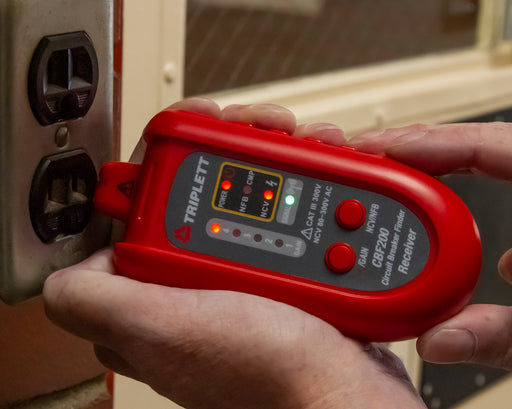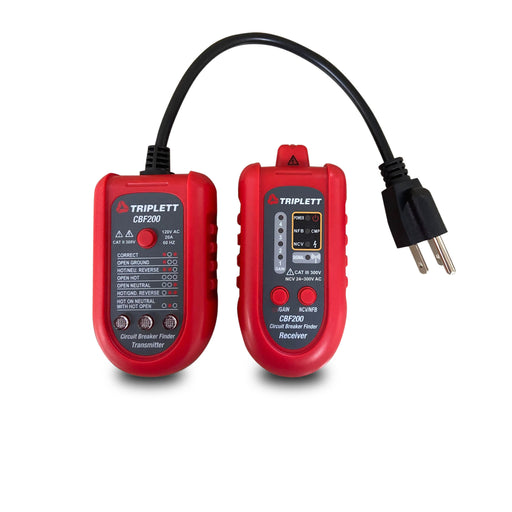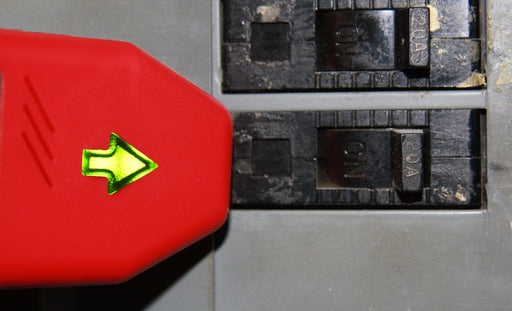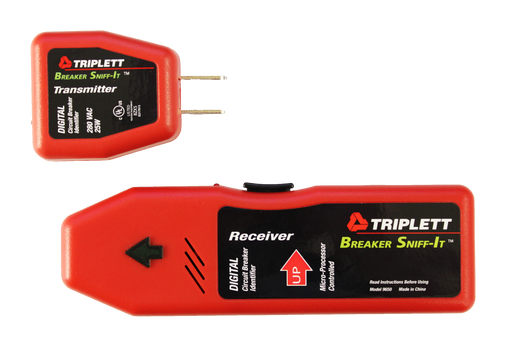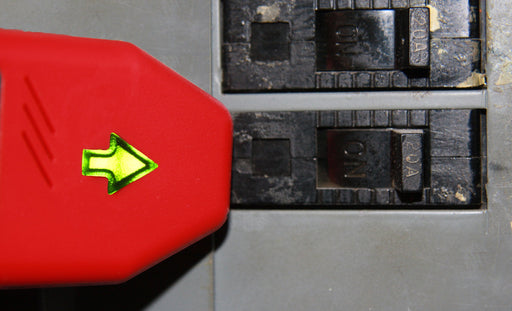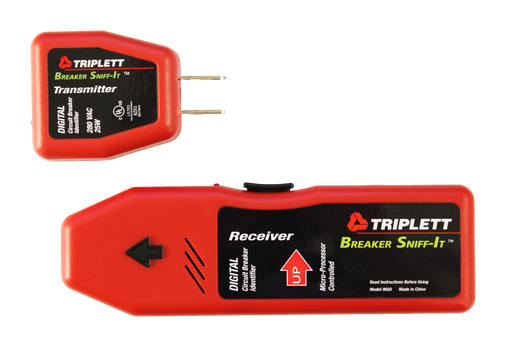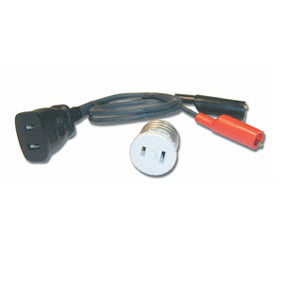Know More About Triplett Tone and probe kits
What is an electric circuit breaker finder and locator?
An electric circuit breaker finder also known as circuit breaker finder or circuit breaker locator is a small device used to detect the concerned circuit breaker in an electrical unit. It locates the circuit breaker by transmitting a signal over the wire and receiving a response for the same. Triplett circuit breaker finder and locator is a handy tool for any professional electrician to detect the right circuit breaker as it needs to be reset after any fault is identified. This is crucial in terms of safety as you can switch off the part of the circuit you need to work on or fix.
What does a circuit breaker detect?
A circuit breaker detects any faults in the circuit which may lead to shorting or thermal overload. To prevent such mishaps, a circuit breaker switches off the power until the issue is resolved. These are important devices in any modern electrical circuitry in buildings, premises, and so on. If there is too much of current flowing through a circuit, it may lead to overheating or fusion of the hot and neutral wires resulting in a short circuit. So, this device breaks the circuits and stops the flow of current.
How do circuit breaker tracers work?
Circuit breaker tracers work based on a transmission-reception phenomenon. The transmitter is plugged in and this produces some current from that electricity line of around 10 amperes. This generates an electrical signal which is transmitted across the wire. The signal follows the circuit path and locates shorts, broken wires, and so on. So, this broken wire detector sends a signal, and the receiver catches the signal received. These transmitters and receivers have microprocessors with algorithms. The receiver on receiving the signal, issues an alert such as a beep sound, which helps trace the right circuit breaker.
Applications of Circuit Breaker Finder
Circuit breaker finders are versatile tools that have various applications in electrical work, maintenance, and troubleshooting. Here are some common applications of circuit breaker finders:
- Circuit Identification: Circuit breaker finders are invaluable for identifying the specific circuit breaker that controls a particular circuit or outlet in buildings with complex electrical systems or poorly labeled circuit breakers. They help eliminate the need for trial and error or manual tracing of circuits, saving time and effort.
- Electrical Maintenance and Repairs: It's crucial to de-energize the correct circuit to ensure safety, when performing maintenance or repairs on electrical systems. Circuit breaker locators make it easy to locate the corresponding breaker, allowing electricians and technicians to work efficiently and avoid accidental contact with live circuits.
- Outlet and Wiring Testing: Circuit breaker finders have the capability to test outlets and confirm their associations with the appropriate circuit breakers. This functionality proves beneficial in diagnosing problems like malfunctioning outlets, loose wiring, or incorrect circuit assignments. By using a circuit breaker finder, these issues can be efficiently identified and addressed.
- Remodeling and Renovations: When engaging in remodeling or renovations, circuit breaker finders play a vital role in identifying the specific circuit breakers that should be turned off for particular areas or appliances. This enables the safe execution of electrical modifications without impacting other sections of the building. By utilizing a circuit breaker finder, the process of isolating and de-energizing the relevant circuits becomes efficient and ensures the well-being of the project and its occupants.
- Troubleshooting Electrical Problems: In instances of electrical problems like tripped circuits or overloads, a circuit breaker finder proves invaluable in precisely identifying the involved breaker. This capability assists in isolating the problematic area and facilitates the effective resolution of the issue. By utilizing a circuit breaker finder, electricians and technicians can swiftly locate the culprit breaker, enabling targeted troubleshooting and efficient resolution of electrical malfunctions.
- Inspection and Auditing: Circuit breaker finder’s help ensure that circuits and breakers are accurately labeled in situations where documentation or inspection of electrical systems is required.
What are the differences between circuit breaker finders vs circuit tracers
Circuit breaker finders and circuit tracers are two different tools widely chosen for electrical testing and troubleshooting. Here are the key distinctions between the two in terms of function, usage and features.
- Usage:Circuit breaker finders are commonly used in residential or commercial settings when the requirement calls to locate a specific breaker to turn off the power. They are largely put to use during electrical repairs, adding new circuits, or when troubleshooting electrical issues. On the other hand, circuit tracers are mostly used by professional electricians who require to map out the entire wiring system of a building or for industrial maintenance to locate faults in complex electrical systems.
- Function:A circuit breaker finder is specifically used to locate specific circuit breakers in an electrical panel. The tool is highly useful in identifying the breaker controlling a specific outlet or circuit by sending a signal through the wiring. In contrast, a circuit tracer is a more versatile tool that can locate and trace the path of electrical cables, wires, and circuits. Additionally, circuit breaker tracers help to identify wiring patterns, junction boxes, and breaks in the circuit.
- Features:Circuit breaker finders are typically portable and consist of a transmitter and receiver. They are relatively simpler in design and are used by plugging the transmitter into the outlet and scanning the breaker panel with the receiver until a specific breaker is identified. Circuit breaker tracers, on the other hand, offer more sophisticated features and are available in different voltage configurations ranging between 120 and 270 volts. They can detect live electrical signals without needing access to an outlet. They often come with additional accessories like probes, alligator clips, adapters and hanging straps.
What is the range of a circuit breaker finder?
The range of a circuit breaker finder refers to the maximum distance at which it can detect the correct breaker in an electrical panel. The range differs depending on the specifications of the model you choose. However, generally, it can range from 90 feet to over 1000 feet. It is recommended to review the product specifications carefully before selecting a model that suits your specific needs and applications.
How to choose a circuit breaker finder?
Following are the key factors to consider when choosing a circuit breaker finder,which assure you the best one for your specific needs.
- Type: There are different types of circuit breaker finders available on the market, such as basic models that only locate the circuit breaker, and advanced models that also detects the wiring condition. Determine which type of circuit breaker finder will serve you better in terms of requirements and budget.
- Ease of use: Ensure to invest on a circuit breaker finder that is easy to operate and user-friendly. Check the device's size and weight, the clarity of its display, and the intuitiveness of its controls and make a wise purchase.
- Additional features: Some models are available with several add-on features, such as built-in flashlight, audible alerts, among others. Although these features improve the device functionality, check if you really need them or not for your specific needs.
- Detection capabilities: Some models can only detect circuit breakers that are turned on, while others can locate both on and off breakers. Therefore, ensure to choose circuit breaker finder with detection capabilities that best matches with your specific needs.
Browse More Electrical Test & Measurement Collections
Multimeters & Clamp-On Meters:
Electrical Accessories:
| GFCI Receptacle Testers | AC Line Splitters |
| Electrical Hand Tools | Non-Contact Voltage Testers |
Megohm & Resistance Testers:
| Megohmmeters - Insulation Testers | Earth Ground Resistance Testers |
Live Wire Circuit Testers:
| Live Wire Tone & Probe Kit |
Specialty:
| Motor & Phase Rotation Testers | Power Supplies |

